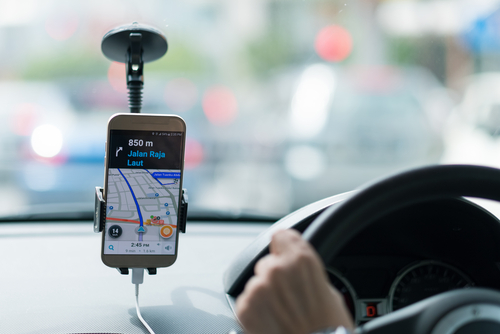The rideshare company Uber has seen widespread adoption throughout the state of Florida over the past few years. Uber offers users a convenient, affordable way to obtain a vehicle and driver. Uber is used by people who don’t have vehicles of their own, by visitors to the state in lieu of renting a car, by people going out to a restaurant, bar, or club, or even by people who are traveling to school or work. Although Uber is seen as a safe transportation alternative, Uber vehicles are driven by people capable of making errors like any other motorist. So how safe is Uber? How often do Uber drivers get into accidents, compared to how many trips the service provides?
Statistics of Uber Usage
According to Uber, the company completes 14 million trips each day worldwide. The platform sees, on average, 91 million monthly active users and 3.9 million drivers.
In Florida, Uber estimates its impact on the state’s gross domestic product at about $1 billion, with a net impact on the state economy of $69 million. The breakdown of Uber usage in Florida includes:
- 25 percent of users take Uber as part of their daily commute
- 10 percent of Uber trips are business travel.
- 14.5 percent of trips are taken by international visitors.
- Over 27 percent of visitors to Florida reported spending more during their trip because Uber allowed them to visit additional locations, while 17 of visitors reported visiting locations or destinations they would not have been able to reach without Uber
Uber Accident Statistics
According to a 2018 safety report published by Uber, there were only 58 fatalities occurring in Uber-related motor vehicle accidents, representing only 0.000005% percent of all trips. This equates to a rate of only 0.57 fatalities per 100 million vehicle miles traveled by Uber vehicles. While this data shows that the rate of fatalities may be low for riding in an Uber, the company did not disclose the number of non-fatal injuries suffered in accidents involving their vehicles.
Studies have found that motor vehicle accidents have risen by about three percent since the widespread introduction of Uber. Uber is thought to cut down on accidents that would be caused by intoxicated drivers, who use Uber to get home rather than getting behind the wheel after consuming alcohol or drugs. However, on the other hand, Uber drivers are especially susceptible to risky behavior behind the wheel such as distracted driving due to drivers’ need to focus on their cell phones, or drowsy or fatigued driving due to many drivers working long and late hours.
Uber’s Liability for an Accident in Florida
Under Florida law, Uber is required to provide insurance coverage for its drivers. The amount of coverage available varies depending on the circumstances of the accident. If a driver is only logged into the Uber app and is awaiting a passenger request, Uber provides insurance coverage that includes bodily injury liability coverage of $50,000 per person/$100,000 per accident, and property damage liability coverage of $25,000 per accident. Once the driver accepts a passenger request, Uber’s insurance coverage rises to a combined liability limit of $1 million per accident.
Read more: The Biggest Mistakes People Make after a Car Accident
Contact a Fort Lauderdale Personal Injury Lawyer to Discuss Your Uber Accident Case in Florida
Did you or a loved one sustain serious injuries due to an Uber accident in Florida? Don’t let the medical bills pile up while you wait for the negligent party or their insurance company to do the right thing. Right now, you need an aggressive personal injury attorney on your side, fighting to get you the compensation you need, want, and deserve. The skilled attorneys at Lawlor, White & Murphey represent clients injured because of Uber accidents in Coconut Creek, Plantation, Pompano Beach, and Pembroke Pines, and throughout Florida. Call (954) 525-2345 or fill out our online contact form to schedule a free consultation about your case. We have an office conveniently located at 2211 Davie Boulevard, Fort Lauderdale, FL 33312, as well as offices in Pembroke Pines, Weston, Coconut Creek, Plantation, and Pompano Beach.
The articles on this blog are for informative purposes only and are no substitute for legal advice or an attorney-client relationship. If you are seeking legal advice, please contact our law firm directly

